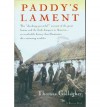Currently reading
Paddy's Lament, Ireland 1846-1847: Prelude to Hatred
Pivot: The Only Move That Matters Is Your Next One
When in French: Love in a Second Language
Beyond the Job Description: How Managers and Employees Can Navigate the True Demands of the Job
Vision and Art: The Biology of Seeing
Achieving Your Potential As A Photographer: A Creative Companion and Workbook
Reclaiming Conversation: The Power of Talk in a Digital Age
Picture Perfect Practice: A Self-Training Guide to Mastering the Challenges of Taking World-Class Photographs (Voices That Matter)
Man's Search for Meaning
Terms of Service: Social Media and the Price of Constant Connection
My Jane Austen Summer: A Season in Mansfield Park
 Mixed feelings, but overall, I liked it. I liked that she kept engaging with the idea of "my Jane Austen." Didn't like the abundance of romances -- that seemed contrived and unrealistic. Some of the best stuff is at the end of the novel, in the author's questions and answers section. She discusses her inspiration for the book (the awful Jane Austen Book Club by Fowler). "I imagined the book that I wanted to read: The Jane Austen Book Club, relocated to Howard's Ed, narrated by an American Bridget Jones. I envisioned Gothic elements and characters immersed in enactments and discussion so immediate that it would seem Jane Austen were present. I found myself inventing a literary festival where Jane Austen's novels assume relevance in the life of a troubled young woman." Where did you get the idea for Lily's imaginary Jane Austen?. . . However,the best friend experience demonstrated that someone could carry on a complete relationship, from initial infatuation, to blow-up, to establishing boundaries, with someone who has been dead over 200 years! Thus Lily's relationship with the imaginary Jane Austen embodies my idea of the dynamics of a contemporary woman's relationship with Jane Austen, taken to its end.What about the ending? [I loved the ending-- al] All of Jane Austen's novels end with a wedding. Although the ending of MJAS is not conventionally happy, Lily gains a sense of identity and the confidence to eventually write her own happy ending. Like the 'don't give a man a fish' proverb: Don't give a character a wedding; teach her to love herself and she'll find happiness for a lifetime.
Mixed feelings, but overall, I liked it. I liked that she kept engaging with the idea of "my Jane Austen." Didn't like the abundance of romances -- that seemed contrived and unrealistic. Some of the best stuff is at the end of the novel, in the author's questions and answers section. She discusses her inspiration for the book (the awful Jane Austen Book Club by Fowler). "I imagined the book that I wanted to read: The Jane Austen Book Club, relocated to Howard's Ed, narrated by an American Bridget Jones. I envisioned Gothic elements and characters immersed in enactments and discussion so immediate that it would seem Jane Austen were present. I found myself inventing a literary festival where Jane Austen's novels assume relevance in the life of a troubled young woman." Where did you get the idea for Lily's imaginary Jane Austen?. . . However,the best friend experience demonstrated that someone could carry on a complete relationship, from initial infatuation, to blow-up, to establishing boundaries, with someone who has been dead over 200 years! Thus Lily's relationship with the imaginary Jane Austen embodies my idea of the dynamics of a contemporary woman's relationship with Jane Austen, taken to its end.What about the ending? [I loved the ending-- al] All of Jane Austen's novels end with a wedding. Although the ending of MJAS is not conventionally happy, Lily gains a sense of identity and the confidence to eventually write her own happy ending. Like the 'don't give a man a fish' proverb: Don't give a character a wedding; teach her to love herself and she'll find happiness for a lifetime.













